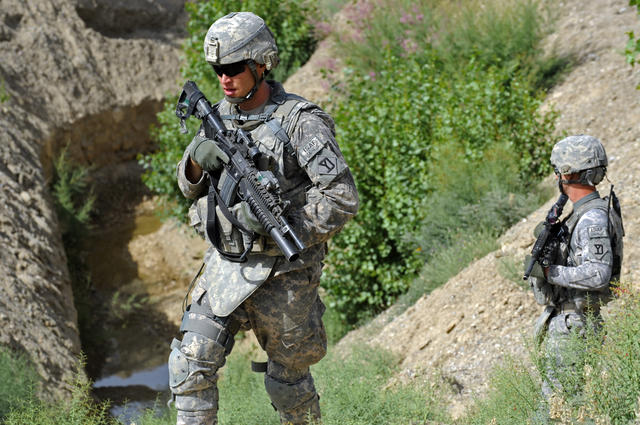
U.S. troops in Zabul Province, Afghanistan, earlier this month / DoD photo by Brian Ferguson
War remains forever about perceptions, absent the signing of instruments of surrender.
Last week: “We’ve inflicted serious losses on the Taliban,” President Obama declared as he announced U.S. troops will start coming home next month.
Last night: nine Taliban suicide bombers stormed one of the most posh and protected hotels in Kabul, killing 11 before they themselves were killed.
There are debates now underway inside the Pentagon over the logic of the attack on the Intercontinental Hotel.
Most likely, officials say, the Taliban carried it out to highlight the futility of additional U.S. efforts in Afghanistan, signaling a resolve to keep attacking as the U.S. drawdown gets underway.
Americans are likely to sigh and shake their heads over such wanton destruction. They will wonder anew if there is anything the world’s best military force can do to change the soil in which the Taliban ideology — and the tribal Afghan politics that nurture it — has been rooted for centuries.
War isn’t only about perceptions, of course. Like the Tet offensive against South Vietnam in January 1968, the attackers lost in Kabul in a military sense. But the perception (there’s that word again) is likely to be that the Taliban — like the Viet Cong — have the will to fight, no matter what the odds. And if there is one thing that trumps perception in war, it is will.


